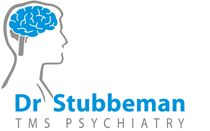
Category Archives: Research


Transcranial Brain Stimulation May Improve Cognition and Memory
A key concept in demonstrating improvement of the working memory system is task transfer – if working memory has been improved, then that improvement should be evident...
The Impact Of Early Visual Cortex Transcranial Magnetic Stimulation On Visual Working Memory Precision And Guess Rate
Neuroimaging studies have demonstrated that activity patterns in early visual areas predict stimulus properties actively maintained in visual working memory.
Can’t Conquer Depression? How Magnets Can Help
Most people with depression feel better with treatment. But about 30 percent can’t seem to shake off their depression. This is especially true if you respond poorly — or don’t respond at all — to antidepressants.
tDCS-induced Modulation of GABA Levels and Resting-State Functional Connectivity in Older Adults
Transcranial direct current stimulation (tDCS) modulates human behavior, neuronal patterns and metabolite concentrations, with exciting potential for neurorehabilitation.
Efficacy of theta burst stimulation (TBS) for major depression: An exploratory meta-analysis of randomized and sham-controlled trials
Theta burst stimulation (TBS) has been proposed as a novel treatment for major depression (MD). However, randomized and sham-controlled trials (RCTs) published to date have yielded heterogeneous clinical results and we have thus carried out the present systematic review and exploratory meta-analysis of RCTs to evaluate this issue.
Evaluation of repetitive transcranial magnetic stimulation for treatment-resistant major depression and the impact of anxiety symptoms on outcome
Objective: The aim of this study was to evaluate the efficacy of repetitive transcranial magnetic stimulation (rTMS) in patients with treatment-resistant major depression and to explore the relationship between the outcome and comorbid anxiety symptoms.
High-Frequency Repetitive Transcranial Magnetic Stimulation (rTMS) Improves Functional Recovery by Enhancing Neurogenesis and Activating BDNF/TrkB Signaling in Ischemic Rats
Repetitive transcranial magnetic stimulation (rTMS) has rapidly become an attractive therapeutic approach for stroke. However, the mechanisms underlying this remain elusive. This study aimed to investigate whether high-frequency rTMS improves functional recovery mediated by enhanced neurogenesis and activation of brain-derived neurotrophic factor (BDNF)/tropomyosin-related kinase B (TrkB) pathway and to compare the effect of conventional 20 Hz rTMS and intermittent theta burst stimulation (iTBS) on ischemic rats. Rats after rTMS were sacrificed seven and 14 days after middle cerebral artery occlusion (MCAO), following evaluation of neurological function.
Transcranial DC Stimulation: Ready for Regular Use in Treating Major Depression?
Studies of transcranial direct-current stimulation (tDCS), which is one of several emerging biological nonpharmacologic interventions proposed to treat depression, have had mixed results. Now a team of investigators[1] from the University of São Paulo, Brazil, have undertaken a systematic review and meta-analysis of individual patient data to assess tDCS efficacy and explore individual response predictors.
